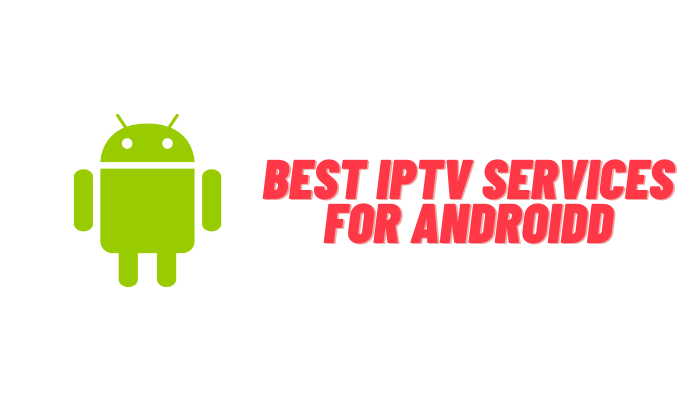Streaming Revolution: How IPTV is Redefining Our TV Viewing Experience
The way we consume television has undergone a dramatic transformation in recent years, and at the forefront of this change is Internet Protocol Television, or IPTV. Gone are the days when viewers relied solely on traditional cable subscriptions and fixed schedules. Today, IPTV services are redefining our viewing experience, offering flexibility and personalization that were unimaginable just a decade ago. With the rise of high-speed internet and advanced streaming technologies, audiences can now access a vast array of content on demand, tailoring their choices to fit their lifestyles.
As more viewers shift towards digital platforms, the landscape of television continues to evolve. IPTV allows users to stream their favorite shows, movies, and live broadcasts directly over the internet, bypassing the limitations of conventional cable systems. This evolution not only enhances how we watch but also expands our access to diverse programming from around the globe. With user-friendly interfaces and an abundance of options, IPTV is rapidly becoming the preferred choice for millions seeking a more dynamic and engaging television experience.
Understanding IPTV Technology
IPTV, or Internet Protocol Television, represents a significant shift in the way we consume television content. Unlike traditional broadcasting methods that rely on signals transmitted through cable or satellite, IPTV delivers television programming via internet protocols. This means that users can stream content directly to their devices, allowing for greater flexibility and accessibility. With IPTV, viewers can enjoy a wide range of channels and on-demand content without the constraints of physical media or schedules.
One of the core components of IPTV technology is its reliance on a high-speed internet connection. premiumiptv enables real-time streaming of live broadcasts, which can be seamlessly integrated with video on demand. Since IPTV utilizes data packets rather than a fixed broadcasting signal, it can provide more interactive features such as pause, rewind, and extensive content libraries. This technology empowers users to have control over their viewing habits, ultimately leading to a more personalized experience.
Moreover, IPTV services leverage advanced technologies such as cloud computing and mobile applications, making television viewing even more versatile. With the option to watch on various devices, including smartphones, tablets, and smart TVs, audiences are no longer tied to a single screen. This flexibility allows for a more on-the-go lifestyle, creating opportunities for viewers to engage with their favorite shows and movies wherever they are, further enhancing the overall TV viewing experience.
Benefits of IPTV Over Traditional Cable
One of the most significant advantages of IPTV is its flexibility and convenience. Unlike traditional cable services that require a specific setup and scheduling, IPTV allows viewers to watch content on their own terms. Users can access a wide range of programming on various devices such as smartphones, tablets, and smart TVs. This multi-device compatibility ensures that entertainment is always within reach, whether at home or on the go.
Another notable benefit is the extensive selection of channels and on-demand content that IPTV services typically offer. Subscribers can enjoy a diverse lineup of international channels and niche content that may not be available through traditional cable packages. This abundance of choices empowers viewers to customize their viewing experience, exploring new genres and discovering shows that align with their interests.
Cost-effectiveness is also a significant factor driving the shift towards IPTV. Many IPTV services provide competitive pricing compared to traditional cable subscriptions, often without hidden fees. As more consumers seek budget-friendly entertainment options, IPTV emerges as a suitable alternative, offering high-quality content without the burden of long-term contracts. This affordability makes it easier for households to avoid overspending while still enjoying a rich array of viewing options.
Future Trends in IPTV Services
The landscape of IPTV services is continually evolving, with advancements in technology driving new offerings and enhanced user experiences. One significant trend is the integration of artificial intelligence and machine learning. These technologies enable personalized recommendations based on viewing habits and preferences, transforming the way users discover content. As algorithms become more sophisticated, IPTV platforms will provide tailored experiences that cater to individual tastes, making it easier for viewers to find shows and movies that resonate with them.
Another emerging trend is the rise of hybrid IPTV services that combine traditional broadcast methods with internet-based streaming. This approach allows providers to deliver a comprehensive viewing experience, seamlessly blending live television, on-demand content, and streaming services. As viewers increasingly seek flexibility in how they consume media, hybrid models will gain popularity, offering viewers the convenience of accessing content across various platforms without sacrificing quality or performance.
Additionally, the proliferation of 5G technology is set to revolutionize the IPTV experience. With faster internet speeds and lower latency, 5G networks will enhance streaming quality, enabling users to enjoy high-definition and 4K content with minimal buffering. This advancement will also support the growth of mobile IPTV services, allowing users to watch their favorite shows on the go. As 5G becomes more widespread, it will further democratize access to high-quality IPTV services, ensuring a richer viewing experience for all.
